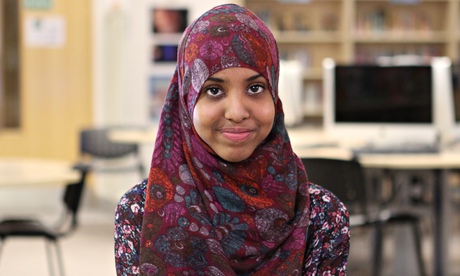
An influential group of Britain's leading human rights barristers has told MPs that the government is in breach of its legal obligation to protect children by failing to stop girls becoming victims of female genital mutilation.
The Bar Human Rights Committee has described recent measures taken by the government to tackle FGM as insufficient and is calling for a wide-ranging package of policies – including mandatory reporting by teachers, protection orders and a dedicated FGM unit – to tackle the crime.
More than 66,000 women are thought to be living with FGM in England and Wales, with 24,000 girls under 15 believed to be at risk, but despite the practice being outlawed in 1985 there is yet to be a single prosecution in Britain.
The director of public prosecutions, Alison Saunders, recently announced that 10 cases were under investigation, and said the Crown Prosecution Service hoped to bring the first case to court within months.
A campaign led by the 17-year-old student Fahma Mohamed, and backed by the Guardian and FGM campaigners, is calling on the education secretary, Michael Gove, to write to all head teachers in the country telling them to inform teachers and parents about the risks of FGM.
The petition has gathered almost 200,000 signatures on the campaigning website Change.org.
Fahma, a trustee of the anti-FGM charity Integrate Bristol, has also made a submission to the committee. She has written informing them that FGM is a concern for her and her classmates, and calling on the education department to become part of the solution.
"You wouldn't think that British teenagers have to worry about FGM but we do.I know of people who have been cut – anyone who knows girls from FGM-affected communities will know girls who have been cut," she said. "The incredible response I have received from my petition shows how strongly the public want to see action from the Department for Education working with schools to address FGM."
In a submission to the Commons home affairs select committee – which is for the first time gathering evidence on the crime and the way it is tackled in the UK – the Bar Human Rights Committee argues that securing a conviction is not enough to meet the UK's legal obligations, and calls on the government to take further steps to protect girls.
"It is our view that the United Kingdomhas been in breach of its obligation under international law by failing to protect girls from FGM in the UK since laws were passed in 1985," said Dexter Dias QC.
"In the subsequent three decades many thousands of UK national girls have been cut either in the UK or abroad and the failure to protect them has been a serious breach of the UK's duty of care. As far as we are concerned the state will remain in breach of international commitments unless and until it develops an anti-mutilation mechanisation that is comprehensive and coherent."
International agreements such as the Committee on the Elimination of Discrimination against Women (Cedaw) and the UN convention on the rights of the child mean the UK government has to be proactive, he added.
"You can't just sit back and then prosecute when someone does something. The UK has a positive duty – you have to be proactive and create mechanisms that are going to prevent and protect."
The lawyers are calling on the government to set up an FGM unit similar to the Foreign Office's forced marriage unit, which helped 250 UK children in 2012. Other suggested measures include:
• Mandatory reporting, so teachers and health professionals would be legally obliged to tell police and social services if they believed a child was at risk
• The introduction of prevention orders so girls at risk from having FGM overseas could be prevented from leaving the country
• Teaching about FGM in the national curriculum
• Closing of a loophole which means children in the UK without secure immigration can be taken overseas and mutilated.
Dias said the state should also provide reconstructive or reversal surgery and counselling for survivors. "These are not discretionary things that are a function of good political will or convenient fashion because of various campaigns," he said.
"These are international obligations of the nation and people, whether activists, survivors or girls at risk, have the right to demand that the state does this. It's not an optional extra – it's indispensable and vital for the proper protection of women and girls."

